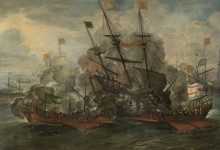The Battle of Stracathro, 1130: A Turning Point in the Scottish Dynastic Wars
The Battle of Stracathro, fought in the year 1130, stands as a crucial moment in the series of conflicts known as the Scottish Dynastic Wars. This battle, while not as widely remembered as others in Scotland’s tumultuous medieval history, played a significant role in shaping the power dynamics within Scotland during the early 12th century. The key figures involved in the battle were King David I of Scotland, who emerged victorious, and Angus McHeath of Moray, the defeated leader. To understand the importance of this battle, it is essential to explore the broader context of the Scottish Dynastic Wars, the events leading up to Stracathro, and its long-term impact on Scottish politics.
The Scottish Dynastic Wars: A Background
The Scottish Dynastic Wars were a series of conflicts that unfolded in the 12th and 13th centuries, largely driven by the struggle for control over the Scottish throne and territories. These wars were marked by power struggles between competing factions, regional lords, and ambitious monarchs. The underlying causes of these wars included the fragmentation of Scottish authority, the rise of regional power bases, and the intervention of external powers such as England.
At the heart of these dynastic disputes was the challenge of consolidating power over the kingdom of Scotland, which had been weakened by internal strife. King David I of Scotland, who would become one of the most notable monarchs of the era, sought to unify the country under his rule and strengthen Scotland’s position both internally and externally. His reign was characterized by efforts to centralize authority, expand his influence, and implement reforms.
The Lead-Up to the Battle
In the years leading up to the Battle of Stracathro, King David I had been engaged in a series of military campaigns to secure his control over Scotland. One of his primary goals was to subdue the rebellious northern territories, particularly the region of Moray. Angus McHeath, a key figure from Moray, stood as one of the significant challengers to David’s growing power.
Moray had historically been a powerful kingdom in its own right, often resisting central Scottish rule. Under Angus McHeath, Moray continued to defy David’s authority, resulting in several confrontations between the two forces. McHeath, a descendant of the ancient royal family of Moray, had considerable local influence and military strength, which made him a formidable opponent for King David.
However, David’s position was strengthened by his support from various factions within Scotland, including the strategic backing of the southern and central regions. The conflict that culminated in the Battle of Stracathro was one of the many clashes in David’s efforts to secure control over all of Scotland and solidify his claim to the throne.
The Battle of Stracathro: Events and Outcome
The battle itself took place at Stracathro, a location situated in present-day Angus, Scotland. While the exact details of the battle remain somewhat unclear due to the limited surviving records, it is known that King David I led his forces into conflict against the army of Angus McHeath. David’s forces, better organized and strategically positioned, ultimately secured a decisive victory over McHeath.
The outcome of the Battle of Stracathro was significant for several reasons. First, it marked a major defeat for Angus McHeath, which significantly weakened his influence and ability to challenge King David’s authority in northern Scotland. Following the battle, McHeath’s power was diminished, and he was forced to accept the dominance of King David in the region.
King David’s victory at Stracathro also solidified his position as the undisputed ruler of Scotland, paving the way for further consolidation of his rule and the expansion of his authority. This battle was one of several that contributed to David’s efforts to centralize power, leading to a more unified Scottish kingdom.
The Impact on Scottish Politics
The Battle of Stracathro was not just a military victory for King David I; it was also a significant political turning point in the Scottish Dynastic Wars. After his success, David was able to maintain greater control over Moray, a region that had long resisted the influence of the Scottish crown. The defeat of Angus McHeath also served as a warning to other regional leaders who might have entertained ideas of rebellion or autonomy.
In the broader context of the Scottish Dynastic Wars, Stracathro represented a shift in the balance of power. David I’s victory further weakened the resistance of local nobles and strengthened the monarchy’s central authority. Over time, this would allow David to implement key reforms, including the establishment of feudalism in Scotland and the introduction of legal and administrative changes that helped to stabilize the kingdom.
The Legacy of Stracathro
Though the Battle of Stracathro itself may not have received the same level of historical attention as some other key battles in Scottish history, its legacy is evident in the outcomes that followed. King David I’s reign set the stage for a more centralized Scotland and a stronger Scottish monarchy. His reforms helped to modernize the kingdom and brought Scotland into closer alignment with European feudal practices, which had a lasting impact on the nation’s political and social structures.
Furthermore, the battle highlighted the importance of regional power struggles in shaping the course of Scottish history. It also underscored the continuing tensions between the monarchy and local lords, a theme that would persist throughout much of Scotland’s medieval history.
Conclusion
The Battle of Stracathro, fought in 1130, was a pivotal moment in the Scottish Dynastic Wars, marking the defeat of Angus McHeath and the consolidation of power by King David I of Scotland. Though not as well-known as some other battles, it was significant in shaping the political landscape of medieval Scotland. David’s victory at Stracathro contributed to his efforts to unify Scotland under his rule, laying the groundwork for the reforms and changes that would characterize his reign. As such, the battle remains an important chapter in the history of Scotland’s medieval period.

